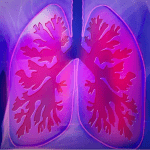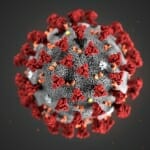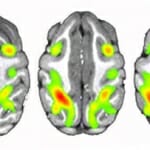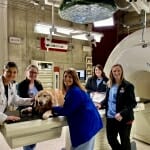Category Health & Wellness
UW Health March 18 daily update: Increased Capacity for Telehealth and Virtual Visits
UW Health is leveraging telehealth technology in responding to the COVID-19 pandemic while also addressing our community’s more routine medical needs and appointments.
UW Health March 17 update: Social distancing now even more important
With today’s announcement that we have community spread of the Coronavirus in the Madison area, we want to remind everyone that practicing social distancing is CRITICALLY important.
March 17 changes to campus operations from Chancellor Blank
Our campus is continuing to monitor the rapidly changing COVID-19 pandemic, including spread of the disease and public health guidelines to mitigate its effects. In light of recent announcements, we have decided to take several additional steps for the rest of the semester:
UW Health Daily Update for March 16: Social Distancing
Social distancing is a conscious effort to reduce contact between people to slow down the spread of the virus. Even if you are symptom-free and not part of an at-risk group, you still need to change your lifestyle for the time being.
Guidance to employees on telecommuting
In response to the rapidly evolving COVID-19 pandemic, the Office of Human Resources is preparing for multiple scenarios related to work flexibility for employees, including the possibility that many employees may need to telecommute.
UW–Madison responds to employee diagnosed with COVID-19
University officials are cooperating fully with Public Health Madison & Dane County and other public health officials regarding a university employee who works in the School of Veterinary Medicine building who was diagnosed with novel coronavirus infection (COVID-19).
UW Health’s daily COVID-19 update for March 13, 2020
UW Health’s message to the community on Friday, March 13, is around COVID-19 testing. The COVID-19 situation is constantly evolving, and these decisions are made with the best interest of patient, staff and community in mind.
Update to campus operations
As the situation surrounding the spread of COVID-19 continues to rapidly change, UW–Madison has the following updates.
COVID-19: Update to campus operations
Please read this important message from Chancellor Blank about campus operations.
COVID-19: Answers from UHS to frequently asked questions
Should I be concerned? Can I travel? What should I do to protect myself and others? University Health Services answers these and other questions. Please continue to visit this site as guidance is updated this week.
UW Health asks patients COVID-19 screening questions
Due to the increase in respiratory illness and the rise of COVID-19 (coronavirus), UW Health is following Centers for Disease Control and Prevention (CDC) guidelines in screening its patients.
School’s first La Follette Forum will be devoted to health policy
The president of the Henry J. Kaiser Family Foundation will give the opening keynote address March 2 at the forum, which is expected to draw nearly 400 policymakers, community leaders, and researchers from across the state.
PharmD students launch Pegasus Health Apps to improve cancer care
The company has created a mobile app that would allow patients and their specialty pharmacies to track their oral chemotherapy treatment cycles and side effects, ensuring optimal management of their care.













